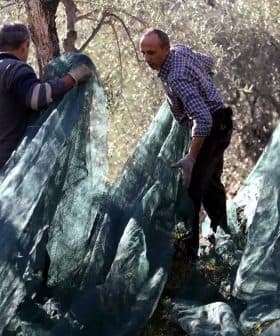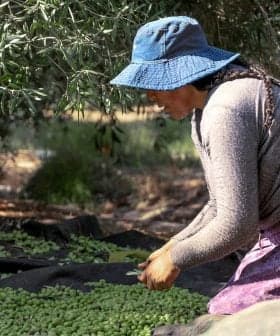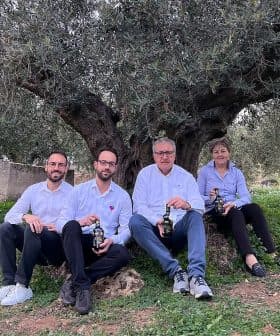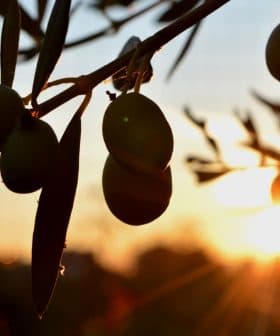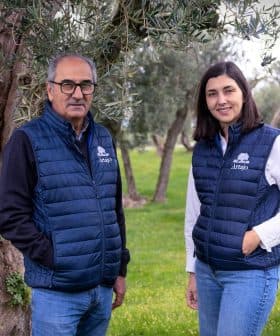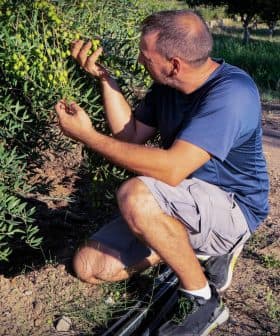Italian Farmers Want Something Done About Wild Boars
With the number of wild boars in Italy doubling in the last ten years to two million, farmers' groups are calling again for a comprehensive plan to deal with an old and growing problem.
Most Italians believe that the rapidly growing population of wild boars in Italy is causing significant damage to crops, property, and infrastructure, with almost 7 out of 10 people feeling there are too many boars roaming the country. Farmers are calling for immediate action to reduce the boar population to prevent the spread of African swine fever and mitigate the economic and sanitary risks associated with the epidemic.
Most Italians say the time has come to put a halt to the rapidly growing population of wild boars whose feeding habits ravage the countryside and intrude cities and villages.
We cannot wait any longer, we need immediate action to combat the spreading of the swine fever through a severe reduction of the wild boars.
A survey conducted on behalf of the farmer association Coldiretti showed that almost 7 out of 10 feel there are too many boars roaming the country, threatening property, and causing mayhem.
“These boars,” highlighted a Coldiretti note, “may be longer than 70 inches, weight up to 440 pounds and have fangs that can reach 12 inches, being therefore comparable to real weapons, capable of inflicting deadly wounds to both humans and animals, while also being tools of devastation through crops and orchards.”
See Also:Drought, Worker Shortages and Roaming Boars: Challenges Mount for Italy’s FarmersOlive growers and other farmers have long denounced the damages caused by the roaming animals to crops and agricultural infrastructures. Many have incurred heavy costs while trying to prevent destruction by one of the widest-ranging mammals in the world.
Local news stations from north to south routinely report roaming herds of animals which are known to leave their marks, such as deep holes, in the vicinity of the olive trees. Traversing miles every night to reach feeding areas, they occupy roads and cross high-speed tracks, often causing accidents.
“I have witnessed in my own farm how the wild boars move along rivers and banks to reach our crops. I got used to half yields,” said Filippo Gasparini, president of the Piacenza branch of the growers’ association Confagricoltura.
“During the hunting season 2019/2020,” noted Gasparini, “in our province, more than 2,000 wild boars were killed, and 26,000 more were terminated in the whole region. Even with those numbers, the current situation is out of control, so regional authorities are including new monitoring operations within the regional wildlife plan.”
According to the figures released by Coldiretti, in the last ten years the number of wild boars in Italy has doubled to 2 million. “More and more they are involved in an escalation of incidents, aggressions, intrusions within urban areas where they spread looking for food in the garbage they find,” the association noted.
Farmers fear the boars could spread the African swine fever to their pigs. “We can not wait any longer, we need immediate action to combat the spreading of the swine fever through a severe reduction of the wild boars’ numbers,” said the secretary of agriculture for the Marche region, Mirco Carloni, who is joining colleagues from other Italian regions in asking the Italian Minister of Agriculture for a nationally coordinated containment plan.

A wild boar statue on the New Market Square in Florence, Italy
“The African swine fever,” underlined Carloni, “infects both wild and domestic animals and kill them all. We must act to reduce both the sanitary risk and the economic risks that the epidemic could bring to the whole pig breeding sector.”
In an editorial published by the newspaper la Repubblica, Piero Genovesi, a researcher and manager at the Italian Institute for Environmental Protection and Research (ISPRA), argued for a comprehensive approach. “These should include better fences for highways, warning signs for drivers in selected areas, reinforcing the fences around the most valuable crops and avoid leaving food within cities,” he wrote.
Such measures might help mitigate the impact of the boar activities, wrote Genovesi, when combined with other actions, such as mass sterilization.
The Italian expert observed, however, that the latest scientific research showed that even sterilization operations conducted on the boars will not be enough to greatly reduce their population. “Instead,” Genovesi wrote, “if we could remove every year 80 percent of all wild boars, we could obtain a dramatic fall of their numbers.”
In the Coldiretti survey, six in ten respondents said they fear the wild boars, and almost half said they would not consider buying a house in an area with a high boar population. Eighty percent of those surveyed said having specialized personnel kill the animals is the best strategy to reduce the numbers.
“The swine fever is making inroads even in European countries previously untouched by the disease and it is spread by the population of infected wild boars that is progressively moving towards Western Europe. It already hit Germany with several outbreaks,” Gasparini noted.
“We are facing such a problem, that the Ministry of Agriculture and the Ministry of Health is coordinating with several other administrations to come up with a comprehensive plan for the monitoring and the managing of the wild boar population.”


